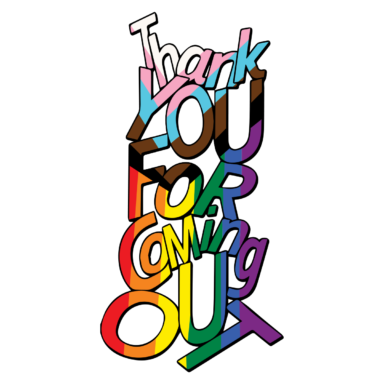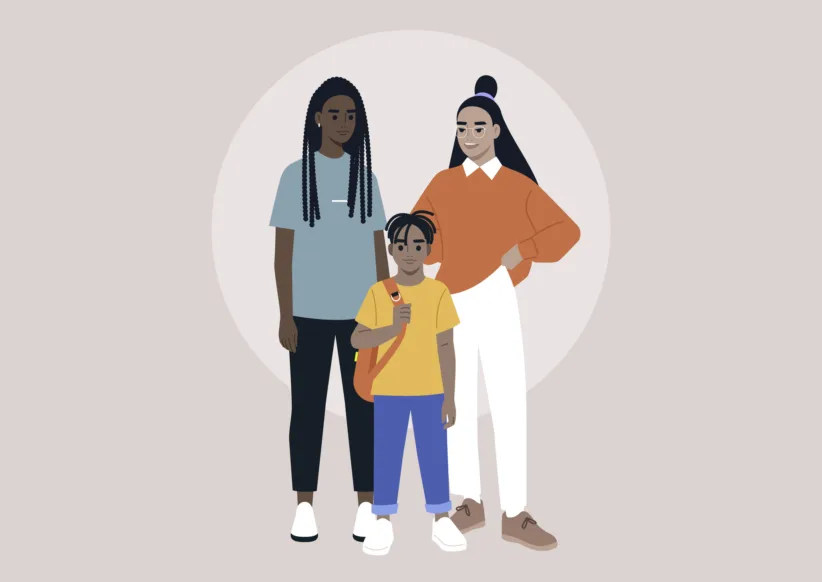Imagine if one day, out of the blue, your dad, or your uncle, or partner came out as transgender. How would you and your family react? What would you tell your children?
Brooklyn filmmaker Sharon Shattuck is the daughter of a transgender parent. She shares her family’s heartfelt story in her new film “From This Day Forward.” This is the first feature-length documentary she has directed, and it’s a moving portrayal of an American family coping with the most intimate of transformations.
The film premiered at the prestigious Doc NYC Film Festival on Nov. 14th at the Bowtie Cinemas in Chelsea to a packed house.
With her wedding just around the corner, Shattuck returns home to examine the mystery at the heart of her upbringing: How her parents stayed together against all odds. In this revealing portrait of an unorthodox family, the filmmaker seeks to understand the inner workings of their special relationship.
When she was in middle school, Shattuck’s father, an artist, came out as transgender (taking the name Trisha), yet, remained married to the filmmaker’s straight-identified mother Marcia. With sensitivity and affection, “From This Day Forward” explores Trisha’s transformation, its repercussions on her family, and the complexity and resilience of love and marriage.
Shattuck sat down to talk with New York Parenting about her revealing documentary.
Tammy Scileppi: What was it like growing up?
Sharon Shattuck: It was really tough. My dad started to transition to a woman (her name now is Trisha) when I was really young — like, 8 years old. My sister Laura was 5. We kind of forced the issue, because we found some photos of dad dressed as a woman, and we brought them to my mom and asked her about them. My parents felt that they should tell us, rather than keeping some dark family secret, so Dad said, “I have something to tell you kids.” Then Dad left the room and came back dressed as a woman, and said, “This is who I am.”
I should note here that my mom already knew about dad — not necessarily that Dad would want to someday BE a woman, but that Dad had a preference for women’s clothing. And she was okay with it.
TS: How did you both react to this news?
SS: At first, when we saw dad dressed up in the living room, my sister and I were pretty okay with dad’s preference — before we realized that our friends and friend’s parents thought it was weird. That’s when we started to feel ashamed of Trisha. To make matters worse, before I started fifth grade, we moved from the suburbs of Chicago up to a very small town in Northern Michigan, where everyone knew everyone, and Trisha (and our family) stuck out like a sore thumb.
TS: What was the community’s reaction like?
SS: When I was younger, there was NO media out there in the world about transgender families. I felt very isolated, and I think because people in our community didn’t understand what was going on with our dad, it made it easier for them to discriminate against our family. My sister and I were lucky in that we made a lot of friends despite our “weird dad,” so we didn’t experience much social discrimination from our peers, but we did witness lots of discrimination from the local community, from older people.
I say in the film that at one point, my sister’s high school math teacher pulled her aside after class and said, “I don’t approve of what your dad is doing.” She was just trying to get extra help with her math homework, and felt completely blindsided by that. Mom and Dad went to the principal of the school, and because he was friends with the teacher, no action was ever taken. Today, my dad still experiences a lot of subtle discrimination and barely veiled contempt from neighbors and townspeople.
TS: Your film’s message?
SS: So, my biggest goal with this film is to show people that lesbian, gay, bisexual, transgender, and queer people and their families aren’t different from anyone else. We deserve respect and acceptance. Other families shouldn’t have to experience what my family did in the ’80s and ’90s, and what Trisha still experiences in her small town to this day. I’m hoping that little by little, hearts and minds will change, and hopefully my film will play a small role in that shift.
TS: How is your family doing now?
SS: My parents still live together (married and very much in love) in the same town in Northern Michigan.
Just one more note on that, since my film is all about my parents and their incredible, enduring relationship: My mom and dad have had such a profound effect on the way I think about my relationship with my husband. I still can’t imagine the amount of change their relationship has endured, but I know that over time, all relationships change and morph, and I’m sure mine will experience its own challenges.
Whenever I get snippy with my husband, I try to remember Trisha’s words, “if you know how to smile your way through arguments and come back, then you’ll go far.”
The film will be on Netflix and iTunes this year. For more, visit www.fromt
Tammy Scileppi is a Queens-based freelance writer/journalist and parent and a regular contributor to New York Parenting.























